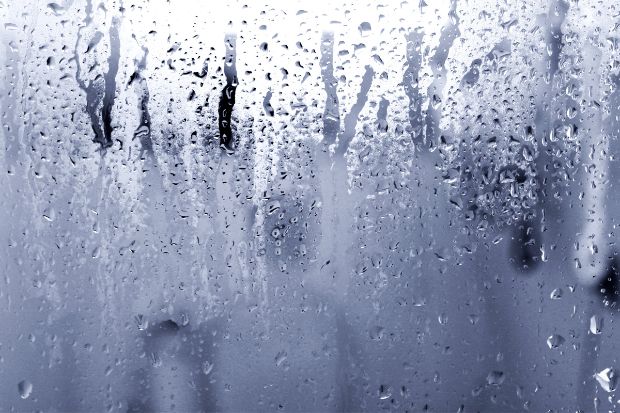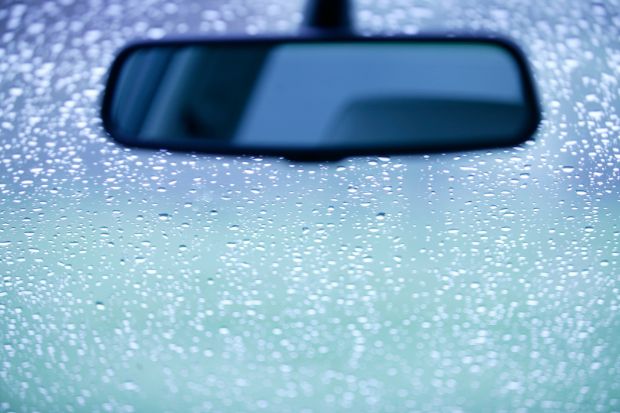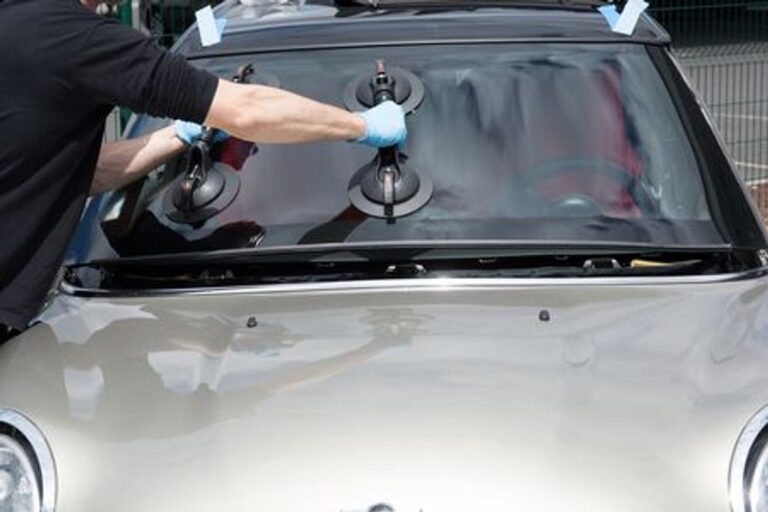Advanced Driver Assistance Systems: A Complete Guide Driving is a...
Things You Didn’t Know About Windshield Humidity Sensors

If you’ve ever driven your car in the rain, you know that windshields can become quite foggy and difficult to see through. What causes this? The answer lies in the air temperature and relative humidity (also known as RH). When you drive in the rain, water droplets on your windshield condense into tiny beads of water. As these beads get bigger and bigger, they form larger pools of water called “fog.” This makes it more difficult for you to see out of your windshield because everything is covered in moisture! Fortunately, there’s an easy solution: installing a moisture sensor on your vehicle’s windshield will let you know when it becomes too humid for safe driving conditions. We’ll tell you more about this handy tool below!
What does windshield humidity sensor do?
The windshield humidity sensor is a small device that measures the humidity in your car. It can be used to help determine whether or not you need to use de-humidifiers, or if you are running them too often. In fact, this is one of the most common reasons for using a dehumidifier at home!
The sensor will be placed near where it comes into contact with air (usually on top of your windshield). You’ll then need to calibrate it so that it reacts correctly when there’s too much humidity or not enough moisture in its environment.
What does moisture on the windshield indicate?
The windshields of your car are one of the most important parts of your vehicle, as they protect you from flying glass and prevent water from entering the car. However, it’s also important to know when a windshield should be cleaned so that it doesn’t become too cold for driving conditions.
If there is moisture on your windshield, this means that either:
- You’ve been in an area where it has rained or snowed recently; or
- You’ve been covered with something other than air-conditioning like a blanket or tarp; or
- Your windows are not tinted enough so they let in too much light
How is it different from a windshield rain sensor?
A rain sensor works by detecting water droplets on your windshield. A humidity sensor, on the other hand, measures moisture in the air. The two systems have different purposes and work best in different situations.
Windshield Rain Sensors: These are more common than windshield humidity sensors because they’re easier to install and maintain. They also cost less money than humidity sensors do (although this does not mean that you should buy one without considering all of its benefits first).
Windshield Humidity Sensors: If you want an accurate reading about how much moisture is present in your car’s interior spaces—including those areas where you park—then a humidity sensor might be just what you need!
Does it work with all windshields?
The windshield wiper system is a part of the car’s windshield that is designed to protect the glass from rain and debris. It does this by moving across the surface in front of you, so that water can be removed from your view before it can reach your eyes.
Windshield moisture sensors work with all vehicles, including cars and trucks—even motorcycles! They’re also included in most newer cars’ dashboards as an optional feature (they’re usually located near or below where you’d find temperature gauges). These sensors help drivers see better while they’re driving through inclement weather conditions like rainstorms or heavy snowfall because they monitor both inside air temperatures outside oncoming winds resulting in accurate readings about how much humidity there might be within range at any given time.
Windshield humidity sensors can help you avoid condensation buildup.
If you’re looking to avoid windshield fogging, a humidity sensor can help.
Windshield humidity sensors are a good way to help prevent condensation buildup on your car’s windshield. The sensors keep track of the air temperature around your car and adjust its defroster accordingly so that it doesn’t overheat or freeze any moisture in the air. This helps prevent fogging up of your windshield which often happens when there isn’t enough oxygen available to evaporate all those droplets from water molecules (i.e., “fog”).
They also prevent getting pulled over by police for driving with a dirty windshield since this type of offense requires one particular condition: “The visibility through any glass portion must be sufficient for safe operation.”
Conclusion
These are all great questions, but you already know the answer: They’re so much more than that! A humidity sensor can help ensure your windshield stays clear, and it doesn’t have to be expensive. There are many models available on the market today that have been designed specifically for use in vehicles with Asian or European-style windshields (aka “European”) as well as those made by American manufacturers. If you live in an area with high humidity levels, consider adding one of these devices to your vehicle; it could save hundreds of dollars in potential repairs down the road!
Read more Articles
Why does a windshield need to be calibrated?
Why does a windshield need to be calibrated? A car’s...



